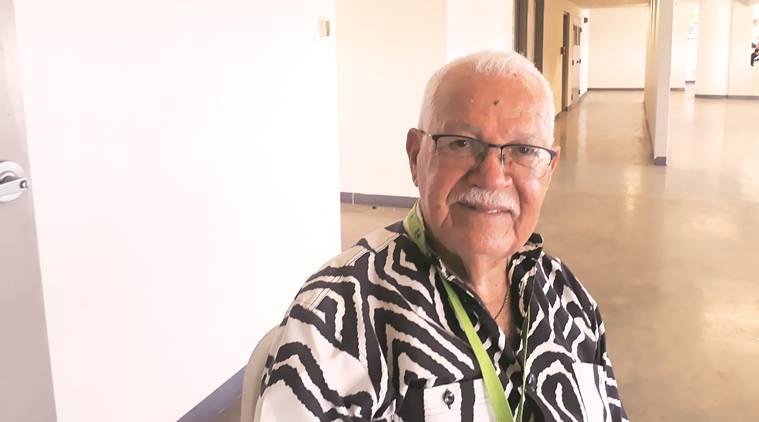
Lying on his mother’s lap at his ancestral home in Georgetown, a depressed Joseph “Reds” Perreira would drift into a world of fantasies. He would imagine himself at the Wankdorf Stadium in Bern commentating on the Miracle of Bern — the 1954 World Cup final between West Germany and Hungary — reproducing the exact words of the commentary he had listened to.
His sombre voice suddenly bursts into raw excitement as he re-enacts his 15-year-old day-dreaming self. “It’s Puskas with the ball on the left flank, he has Koscis to his right, Lorant overlaps. Puskas to Koscis, who zips a curler to the far post. But the German keeper Turek fists it away. Oh what a chance!”
Now, as then, it’s as if he can see all that action unfold right in front of his eyes.
“No. I have never seen that match live. Just listened to the commentary once. My memory was God’s way of redressing the disability he gave me,” he says. The disability Perreira is referring to is stammering. How he overcame it and became one of the most distinguished sports commentators — the second Test between West Indies and India was his 150th and last — is the essence of his story.
“When I was in school I used to stammer so badly that I dropped out, because my classmates and teachers made fun of my stammering. I used to come home and weep on my mother’s lap. She would console me and made me listen to sports commentary and would ask me to repeat their pronunciation and intonations. I realised I was not stammering when I was with my mother. I was too conscious of myself. That was my problem.”
Still, some words would take an eternity to roll off his tongue. It was during his stay in Denmark that he eventually overcame it. “I went to study in England and then I went to Denmark for a year, where I stayed in a youth hostel. In spare time, I worked as a dishwasher at a hotel. It was boring, so what I did was that, before going to the hotel, I made a list of the words I regularly stammered and kept saying it aloud when I washed the dishes. Like I was chanting a Biblical verse. And gradually, I began pronouncing those names clearly.
Like Sheila, Sri Lanka, Shillingford, shipshape, shadow…” He mumbles those words again and asks: “Now you tell me, do I stammer? No, I don’t. It wasn’t the case. Once upon a time, just to pronounce Sheila I would have taken 10 minutes.”
He returned to Guyana a different man and worked towards getting his dream job, which was to become a commentator. “It was this ambition that helped me overcome the disability. It was my way of showing the world that if you put your mind on something you can overcome any hurdle in life.”
Together with his best friend Tony Cozier, they formed the voice of Caribbean commentary. “We were different, he was very erudite while I was more descriptive, but we became great friends and travelled the world together.”
The 80-year-old’s greatest coup was breaking the news of West Indies’s rebel series to South Africa in 1983. “Oh, I have never been so tense in my life after I broke the story,” he says. “An official in the board tipped me off, a cryptic one rather. He just told me, ‘West Indies is touring South Africa. Do your homework.’ Given the social situation in the Caribbean, it became big news, and the next day everyone had assembled at the Barbados Airport waiting for them.
“Suddenly a strange fear gripped me. Was it a cruel prank, for there was no trace of any player? But a baggage-handler told me he had spotted Alvin Greenidge. I then called the airline manager, asked if he would nod when the team is in. Then, the first plane came and no one turned. I grew tenser.
Then the airline manager nodded his head. The first flight was a decoy. They were travelling in the next, an American Airlines carrier,” he recollects.
In 1996, while touring Australia, Perreira suffered a stroke. “It was not as hard as overcoming stammering. That had infused me with the confidence that I could fight any adversity in life.”